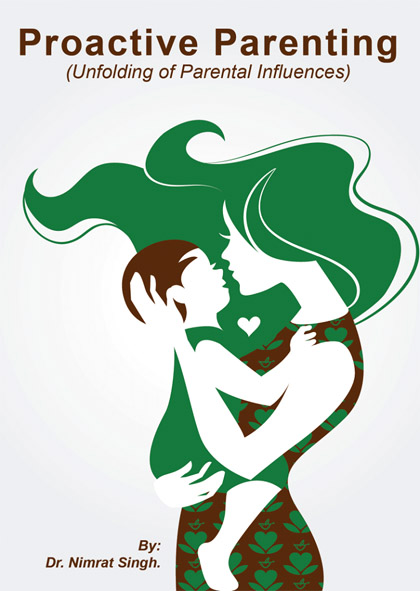- Connect with us
- (079) 2685-3626 / 27
- +91 90990-20781
- info@tangramhr.com
Proactive Parenting

Aim and Scope
The objective of this book is to reach out fellow parents, echo their concerns, understand their feelings, and provide strategies to change themselves and see the change in their children.
About the Author
Dr. Nimrat Singh is the founder director of Tangram- Tracking the human mind in Ahmedabad. She has extensive consulting experience in Engineering and Manufacturing organizations. She has been part of the Business Process Re-engineering phase for a number of organizations and has consulted several leadership developments. Nimrat has worked on assignments involving talent recruitment, succession and career planning and senior leadership coaching.
She emphasizes supporting the individual to be self-driven and to design formal mechanisms for continuous engagement and improvement to accomplish desired results.
She is a licensed Practioner for CPI, 16PF, MBTI, and Hogan Assessment System. She is currently authoring two books. She is registered with the Rehabilitation Council of India (A01516) and is a member of Indian Association of Clinical Psychologist (LM311/77).
Brief of book
The books is a confluence of - experiential sharing and cases generated from what people shared during personal counselling, parental training and workshops. The book dwells on the concept of self esteem and how it plays a role in unfolding parental influences on child rearing in the context of Indian society. The introjection and projection mechanism influence parenting style. The book focuses on mechanism to redefine and to reengineer the parenting style based on choices in the 'here and now'. It draws from the theoretical concepts of 'positive psychology'.
Synopsis
This book is an outcome of all the exploration and sharing held with parents across India. We belong to a very ancient culture and traditions. Parenting as all others roles have come to us through the influences of culture, society and family socialization. Hence parenting is an automatic process. The break-down of joint family system, rapid urbanization, new frameworks in education, and impactful westernization have brought about drastic changes in our beliefs and values. Parents have a challenging role at hand. They are the ones to provide continuity and follow the prescribed inherent roles as well as provide learning and growth to their children to prepare them to deal with the changing world and evolve as global citizens.
The concept of self esteem is central to their child's educational development. Mounting research and experiences shared by teachers, psychologists and remedial therapists indicate that the increase in learning difficulties, behavioural and conduct disorders can be sourced back to the family system.
One of the most fundamental role and responsibility of the school and family is to uphold the self esteem of the child. Irrespective of how competent, accomplishing and resourceful the child is. By the time the child enters school; his self esteem is largely forged. School adds or detracts the child's self esteem. The foundation and seeding of the child's self esteem is laid by his parents and by the significant others in his childhood.
The child's self esteem is closely associated with both the parents self esteem. Parent's high self esteem effect high self esteem in their child and the converse is also true. The relatedness between parents determines the child's psycho-emotional growth. If a child has experienced parental discord early in life, his security is more disturbed than if he experiences parental discords at a later age. Children coming from disturbed homes find it difficult and apply themselves to school work. Their fears that the world is not a safe place get reinforced if they are not understood by teachers.
This book focuses on three key topics. Parents have a past. They too grew up in an environment with different kinds of expectations from either of their parents and their own aspirations (Chapter 1). The second part of the book focuses on parental feelings and what makes them what they are. Last part of the book looks at Parents as being dynamic and ready to learn, unlearn and relearn. (Chapter 3)
The book provides relevant studies and examples of parents, teachers and students met during counselling and in training programme. This book is aimed particularly at parents of school children but it is relevant to anybody interested in understanding the emotional, social and educational development in changing times.
It is aimed as exploration and insightful thinking. There are really no answers or solutions to parenting. We are all unique, distinct and different individuals; hence the concept of a perfect parent is a misnomer. We are proactive human beings and just like any plant have a natural predisposition to move towards light, so are we, always seeking and finding ways of enhancing ourselves. Hence, the title 'Proactive Parenting' was the closest I could get to expressing most parenting styles. I do recognize and realize after talking to thousand of parents, academicians and children that parenting is the hardest job of all yet the most nourishing and replenishing of all our roles.
